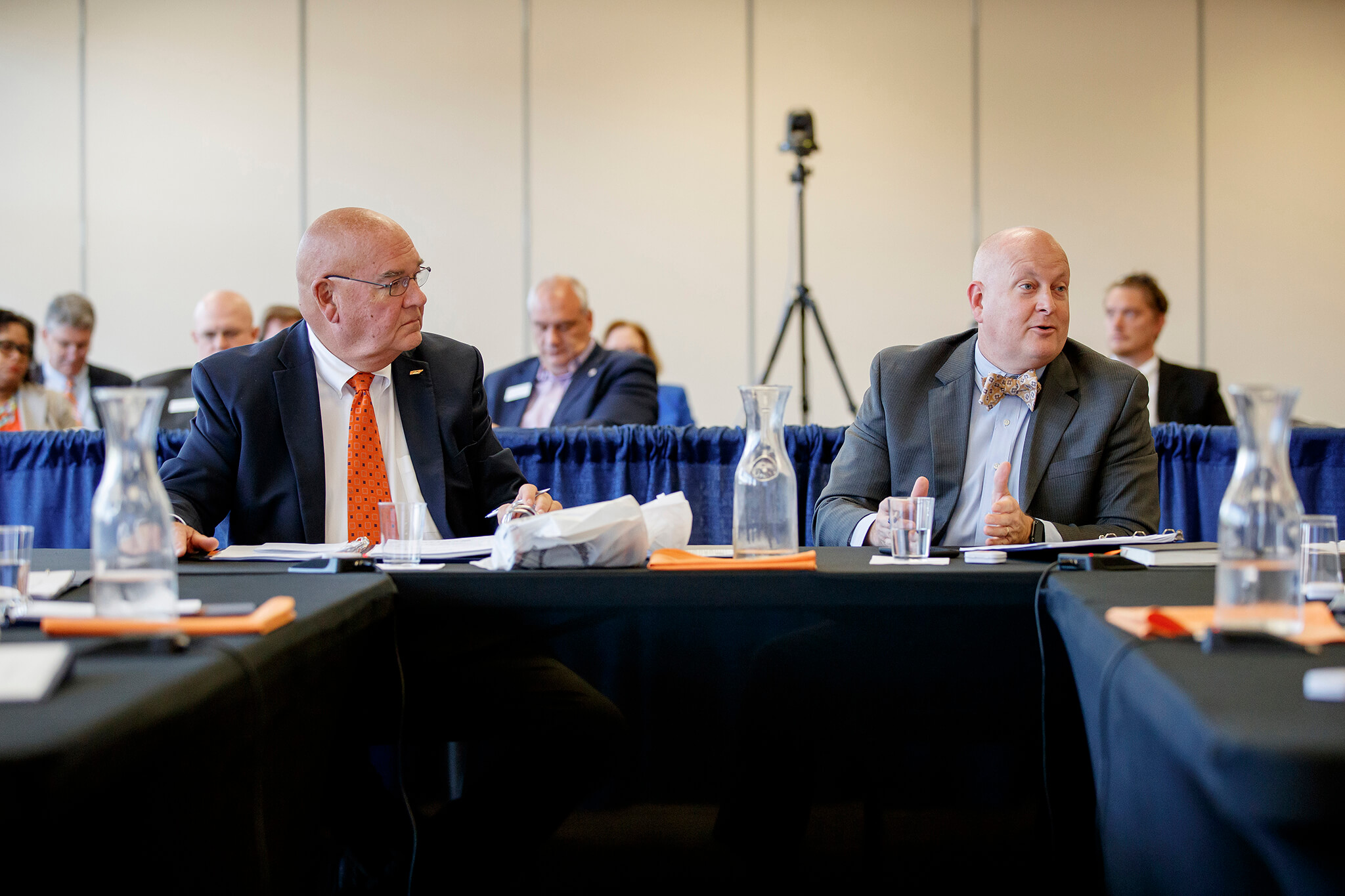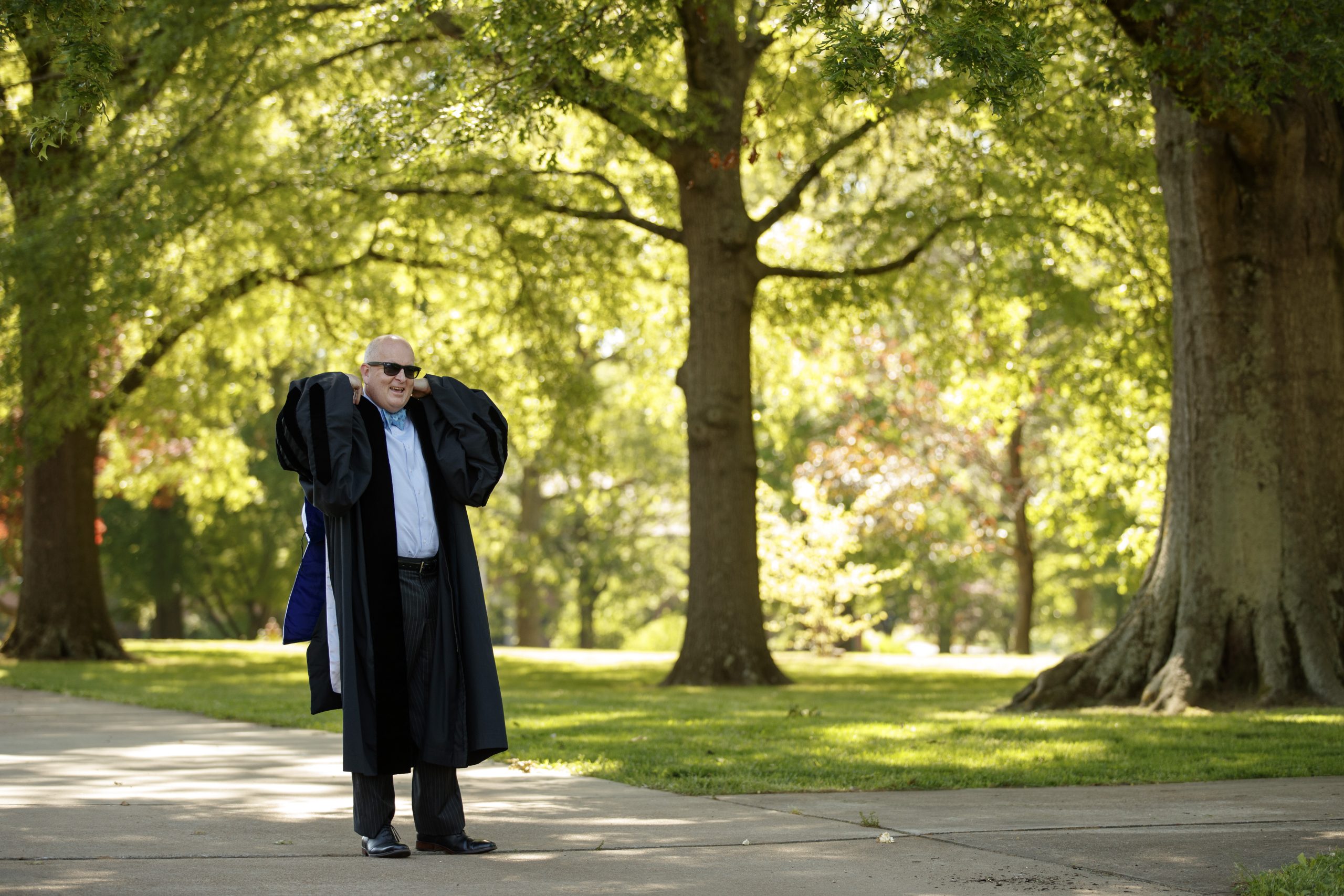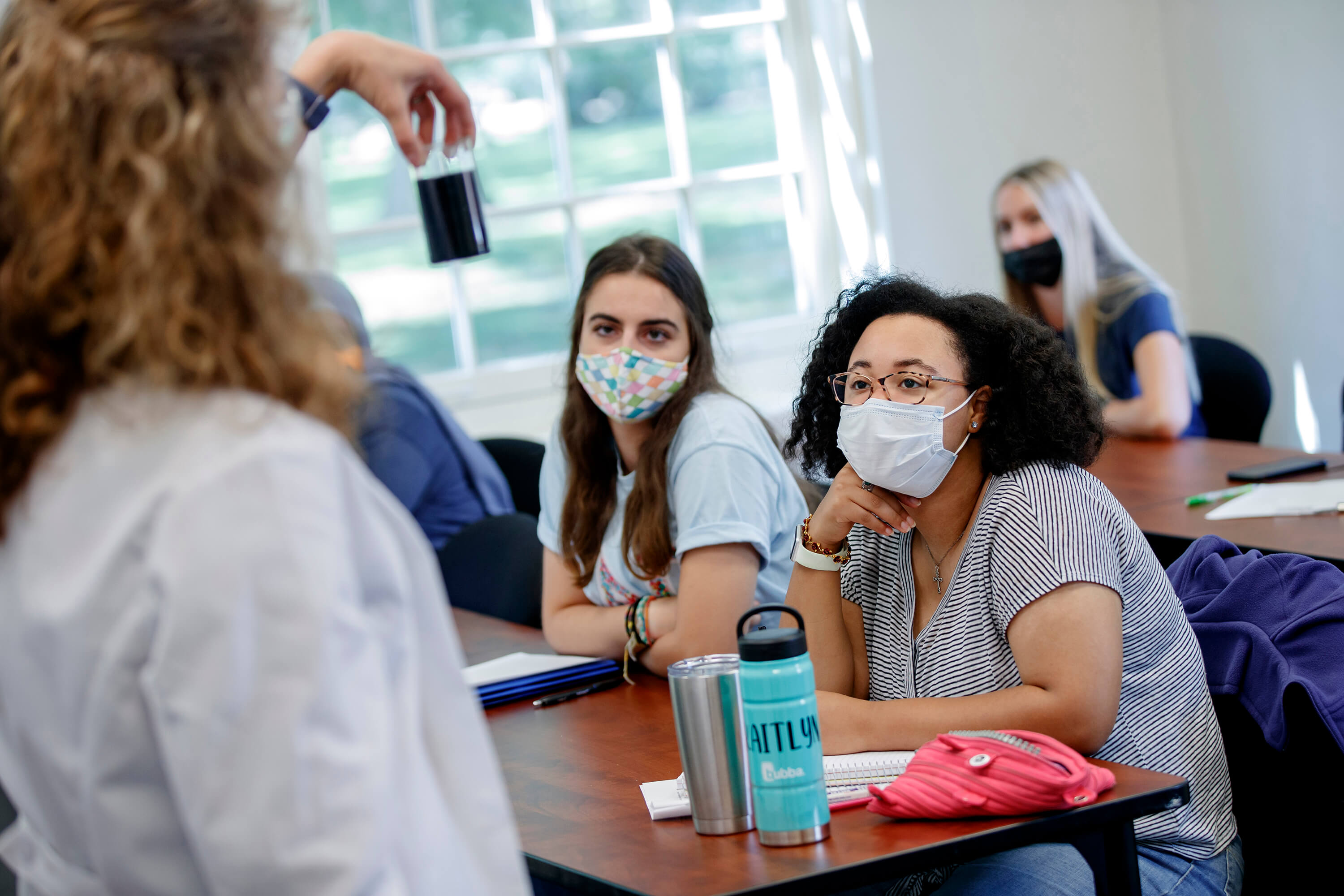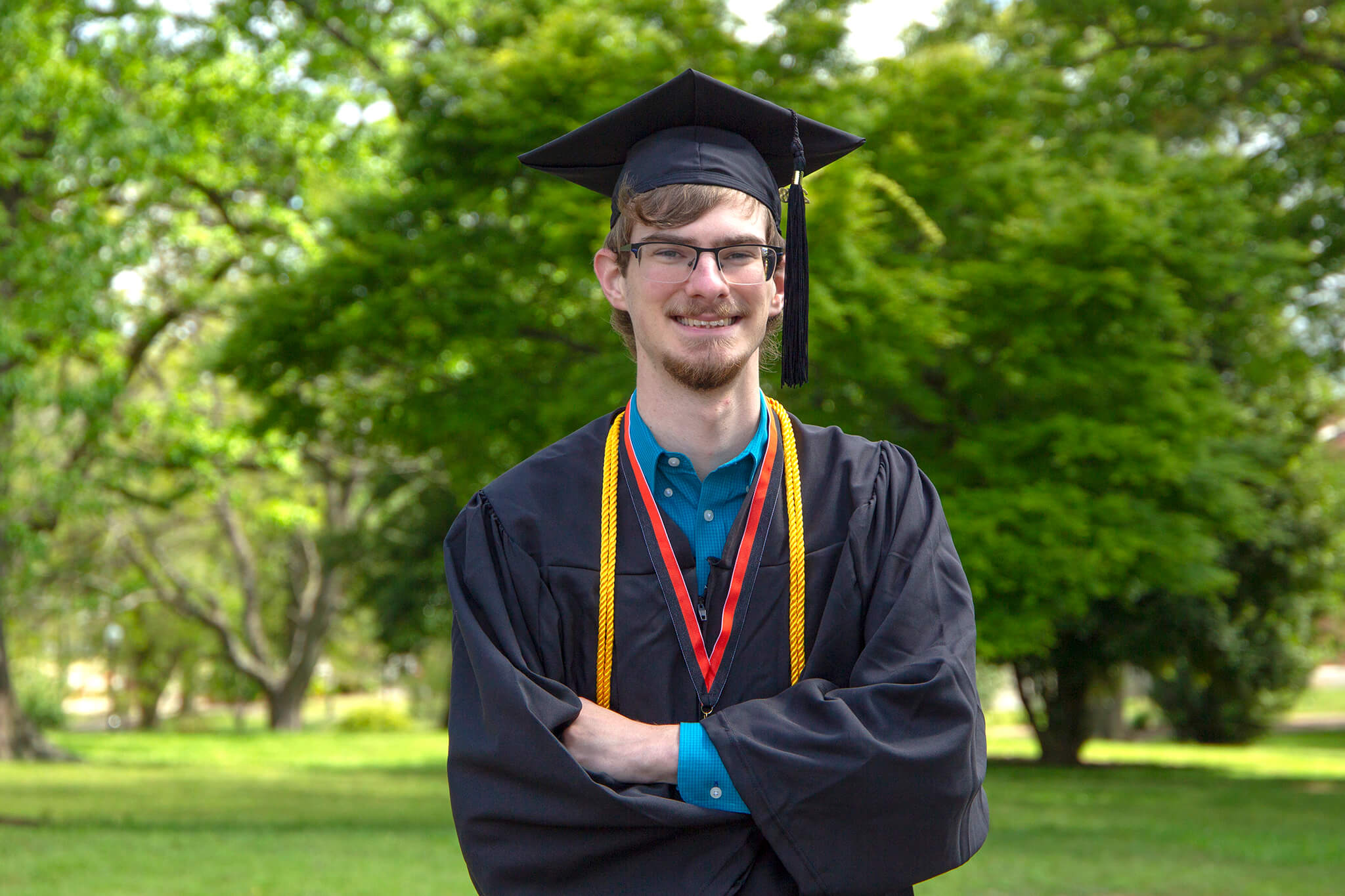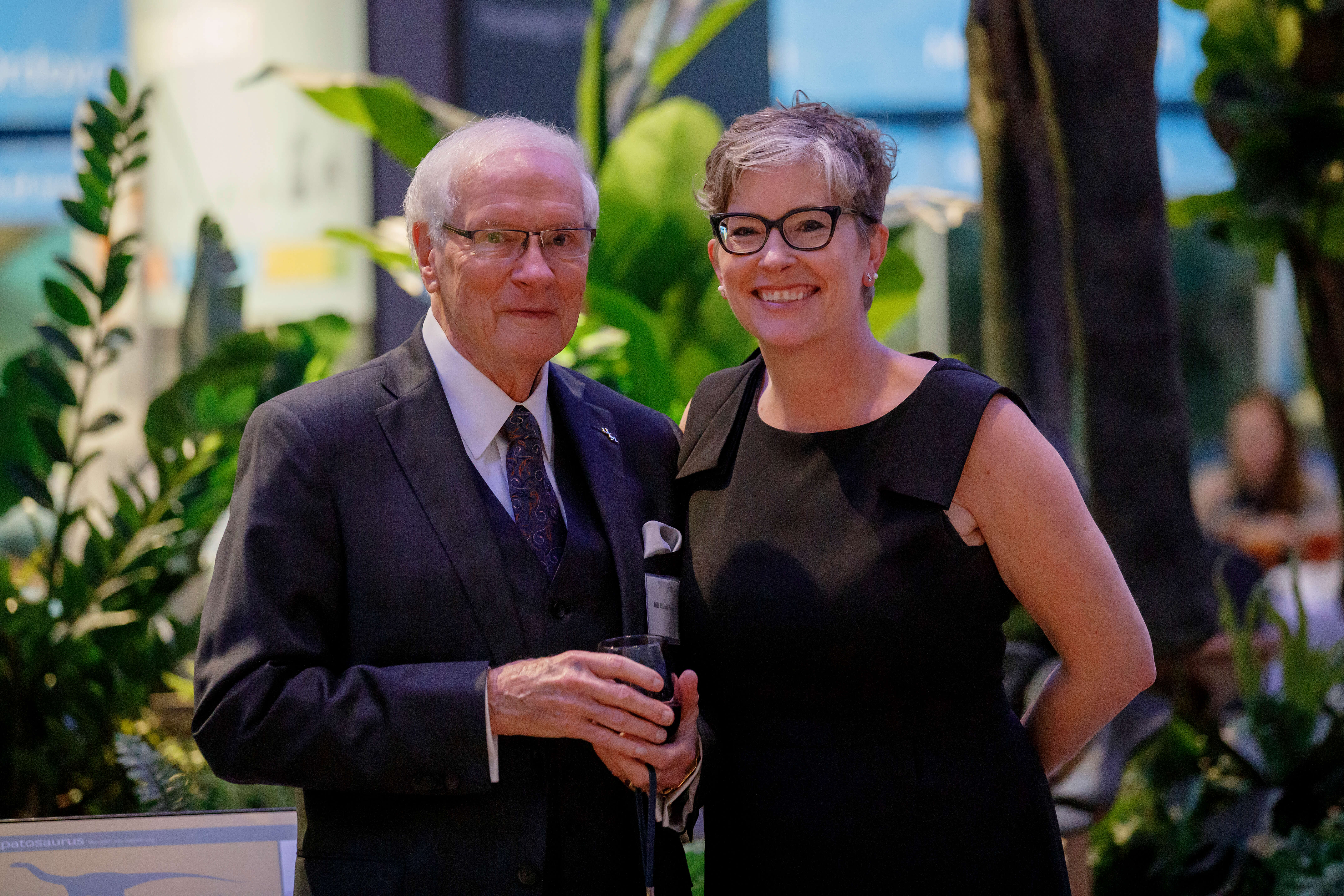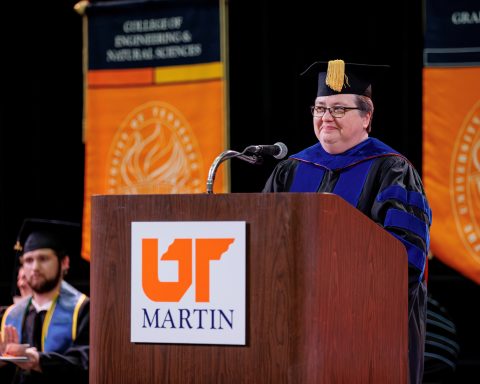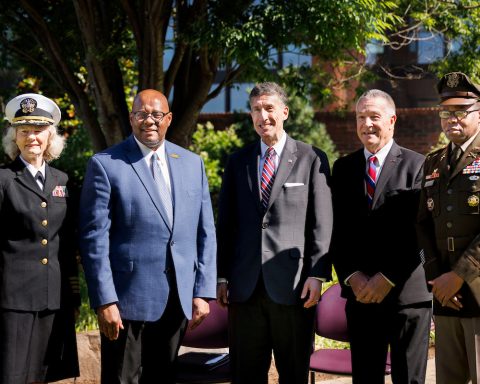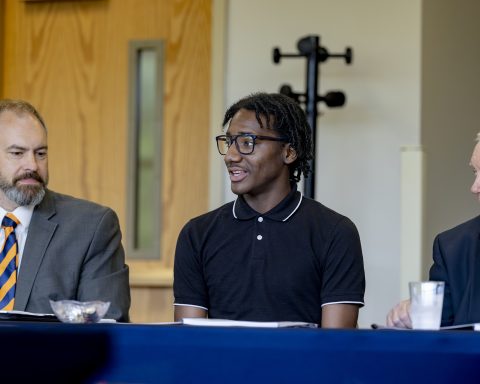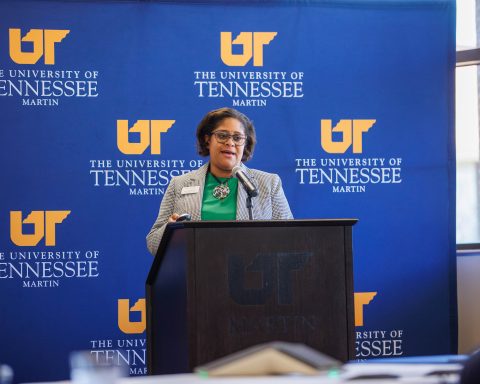The University of Tennessee at Martin Advisory Board met May 8, during the annual summer meeting to discuss the effects of the COVID-19 pandemic on the campus, the strategic enrollment plan, the proposed budget for the 2020-21 fiscal year and an update on the improvements made to the university’s Clery Act compliance.
UT Martin Chancellor Keith Carver addressed the board concerning the recent UT System announcement to reopen all UT campuses in the fall, reassuring the members that the university will continue to monitor the pandemic and take all precautionary measures needed to ensure the safety of students, faculty and staff. Carver referenced three scenarios the reentry taskforce has been challenged to weigh including a return to all in-person classes in the fall, a hybrid semester involving online courses at the beginning with a transition to residential classes later or continuing all classes online.
“President Boyd announced that we would be working to being open as a residential college experience in the fall, certainly that would be ideal, but only if it’s safe and only if we see things improving,” Carver said. “Even if we do return residential in the fall, things will look a lot different here.”
Carver also addressed feedback he has received from UT Martin students, saying the transition to online classes during the spring semester worked for the emergent need to social distance but has also reinforced the need for a residential college experience, which student representative Lauren Carter agreed with. So far, six UT Martin students have tested positive for COVID-19, contracting the disease after leaving campus, but are now recovering.
The board also discussed struggles students have endured while having to work from home, including solutions to problems like internet connectivity. Through a grant made possible by the CARES Act, UT Martin was able to purchase Verizon hotspots for UT Martin students to borrow to complete online classes.
Provost and Vice Chancellor for Academic Affairs, Dr. Philip Acree Cavalier, and Vice President of Ruffalo Noel Levitz, enrollment and fundraising management organization, Dr. Lew Sanborne, presented the third phase of the strategic enrollment plan, which involves finalizing the written strategic enrollment plan and estimating cost projections before implementing the strategic plan. The plan will focus on student recruitment, retention and success in order to help the university’s enrollment and budget through undergraduate and graduate development plans.
“We have a very thoughtful plan that is based on data and market research that allows us to get ahead of what might be coming with some of the downturns with the COVID-19 pandemic,” said Cavalier.
According to Sanborne, the strategic plan created for UT Martin reflects the university’s unique mission and commitment to student success. The plan includes new graduate and undergraduate programs on the main campus and centers.
“It’s been a crazy time, we’re really working hard to make this as normal as we can for our students, but even given all of the challenges that we’re undergoing, I am still excited about the strategic enrollment plan, still encouraged about the development of these new academic programs and the hopes for getting folks back together for the fall if it is safe,” said Carver.
Vice Chancellor for Finance and Administration Petra McPhearson presented the proposed budget for the 2020-21 fiscal year; however, the base budget does not reflect any adjustments for the effects from COVID-19 or the $5.1 million awarded through the CARES Act. Of the $5.1 million, $2.5 million is required to assist students for any disruption expenses incurred during the COVID-19 pandemic. The university is currently receiving guidance from the state to determine how the remaining $2.5 million can be awarded.
The advisory board approved the annual operating budget, including the proposal to not increase student tuition for the 2020-21 academic year.
The board also introduced two new members: Dr. Philip Smartt, faculty representative, and Emma Hilliard, student body representative, as well as reelected Art Sparks as the board chairman for an additional two years.
Smartt, professor of natural resources management, is the current Faculty Senate president and will begin his term on as the faculty representative on July 1. He will replace Dr. Chris Caldwell who has served on the advisory board since its inauguration. Smartt has taught at UT Martin since 2003.
Hilliard is a junior health and human performance major from Bells, whose term will officially begin July 1. She will represent the student body on the advisory board for the 2020-21 academic year and replace Lauren Carter.
The next scheduled meeting of the UT Martin Advisory Board will be held Sept. 18. Agenda information will be distributed one week prior to the meeting date. For more information, contact the UT Martin Office of University Relations at 731-881-7615.
###

